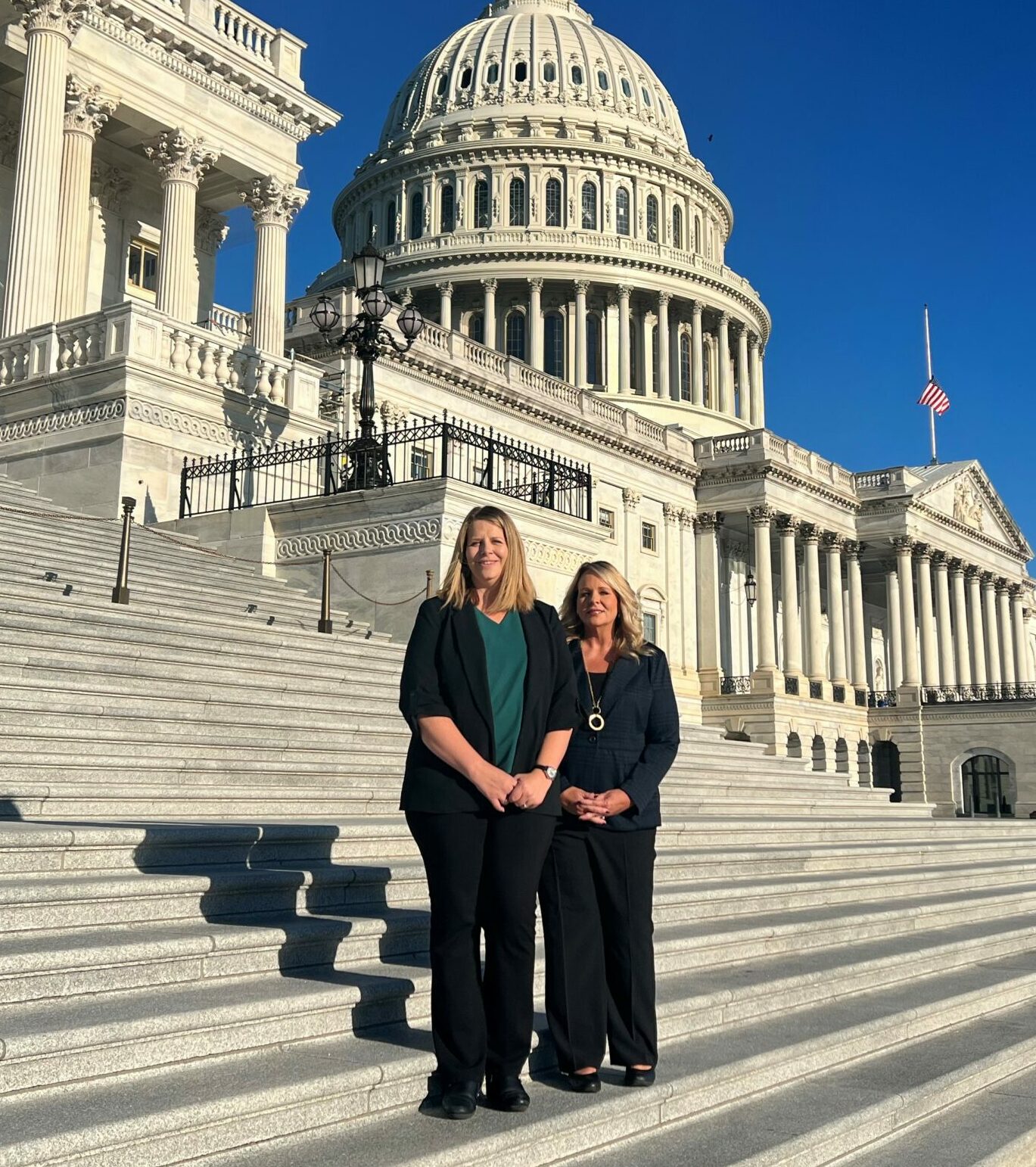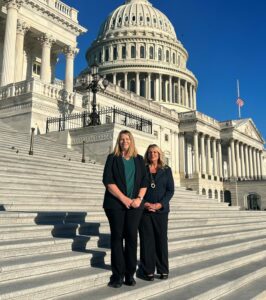In a significant development for Iowa, influential lawmakers are turning their attention to the critical needs of behavioral health across Iowa, particularly in rural areas where access to comprehensive services and reimbursements remain a challenge. Recent visits from prominent figures underscore a renewed commitment to addressing the root causes of substance abuse and promoting mental health support in communities throughout the state.
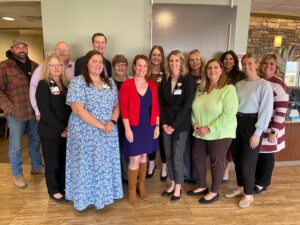 On National Rural Health Day (November 16th), Iowa Health and Human Services Director, Kelly Garcia, and State Epidemiologist, Dr. Robert Kruse, visited MRHC and the Recovery Center. Their presence underscored the critical need for integrated behavioral health services, with a focus on mental health and substance abuse. Engaging with healthcare professionals, community leaders, and the hospital’s board and senior leadership team, Director Garcia and Dr. Kruse discussed collaborative solutions to improve statewide healthcare and to also address the unique needs of rural communities.
On National Rural Health Day (November 16th), Iowa Health and Human Services Director, Kelly Garcia, and State Epidemiologist, Dr. Robert Kruse, visited MRHC and the Recovery Center. Their presence underscored the critical need for integrated behavioral health services, with a focus on mental health and substance abuse. Engaging with healthcare professionals, community leaders, and the hospital’s board and senior leadership team, Director Garcia and Dr. Kruse discussed collaborative solutions to improve statewide healthcare and to also address the unique needs of rural communities.
During her visit to Manning on September 12th, Iowa Attorney General Brenna Bird highlighted the importance of tailoring initiatives to the unique challenges faced by these areas stating, “Rural communities often encounter barriers in accessing quality healthcare and addiction treatment services. The opioid settlement funds are one-time funds that could provide an opportunity to bridge those gaps and make a lasting impact on the lives of those affected by opioid addiction in our rural communities.” 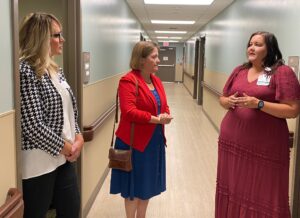
Earlier this year, agreements were reached with manufacturers, distributors, and pharmacies to provide nearly $50 billion in payments for state and local governments across the nation. Funding was distributed to each state, and in Iowa a portion of those funds were distributed to each county for the county supervisors to disperse locally. The rest of the funds are currently held at the state level with the anticipation that lawmakers will determine appropriations in the next legislative session.
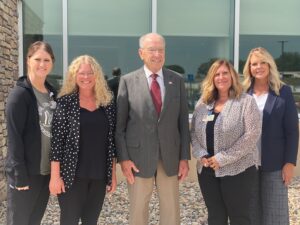 Senator Charles Grassley as well as Republican presidential candidate and North Dakota Governor, Doug Burgum, accompanied by his wife, Kathryn, also visited MRHC earlier this fall to gain a better understanding of the healthcare needs affecting rural areas and the unique position of MRHC and the Recovery Center.
Senator Charles Grassley as well as Republican presidential candidate and North Dakota Governor, Doug Burgum, accompanied by his wife, Kathryn, also visited MRHC earlier this fall to gain a better understanding of the healthcare needs affecting rural areas and the unique position of MRHC and the Recovery Center.
These visits provided lawmakers with a firsthand look at the Recovery Center’s efforts to support residential and outpatient recovering addicts. MRHC, serving as a model for rural healthcare services, became a platform for discussions on comprehensive strategies to address behavioral health challenges, reimbursements, and access to care in rural Iowa.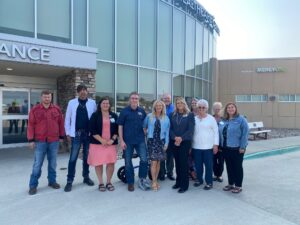
Director Garcia emphasized the importance of addressing behavioral health needs, stating, “By understanding the challenges faced by the communities across our state, utilizing research-based methodologies, and taking a comprehensive approach to address the most critical health needs, we can develop targeted and effective strategies to improve our overall health outcomes.”
These visits reflect a broader, bipartisan commitment to address rural healthcare challenges in a unified and strategic way. This holistic approach starts with a grassroots understanding of the challeng es affecting rural hospitals accompanied by discussions to adjust policies at the state and federal levels. These collaborations reflect an aligned dedication to build healthier and more resilient commun ities across the state.
As Iowa takes a significant stride forward in the battle against opioid addiction, the opioid settlements stand as a beacon of hope for rural communities. MRHC Administration and the leadership of the Recovery Center are taking this opportunity to educate local county supervisors as well as statewide leaders to better understand the services that already exist, their vision for addressing this epidemic, and the potential for MRHC and the Recovery Center to serve even more clients and their families.
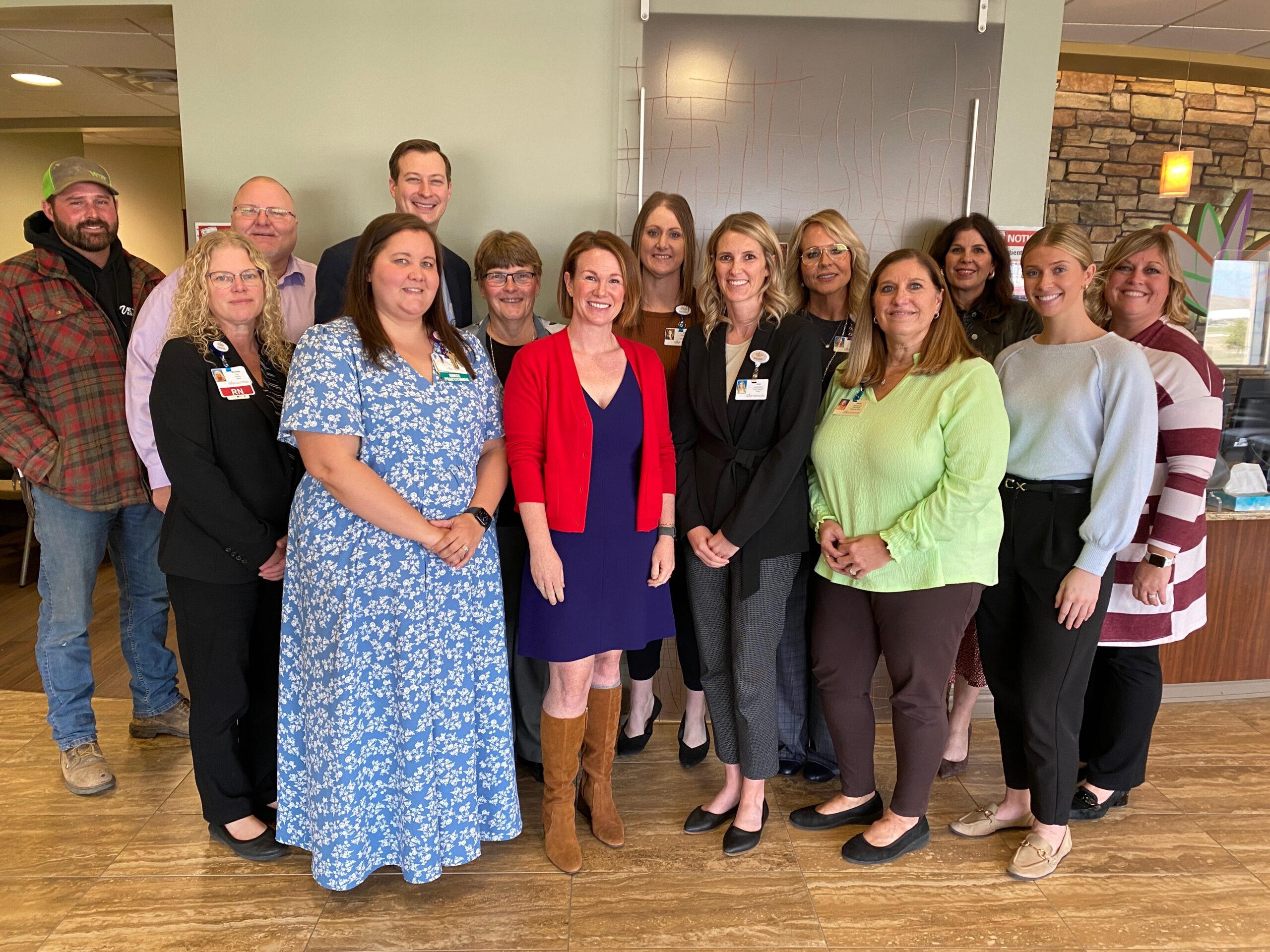
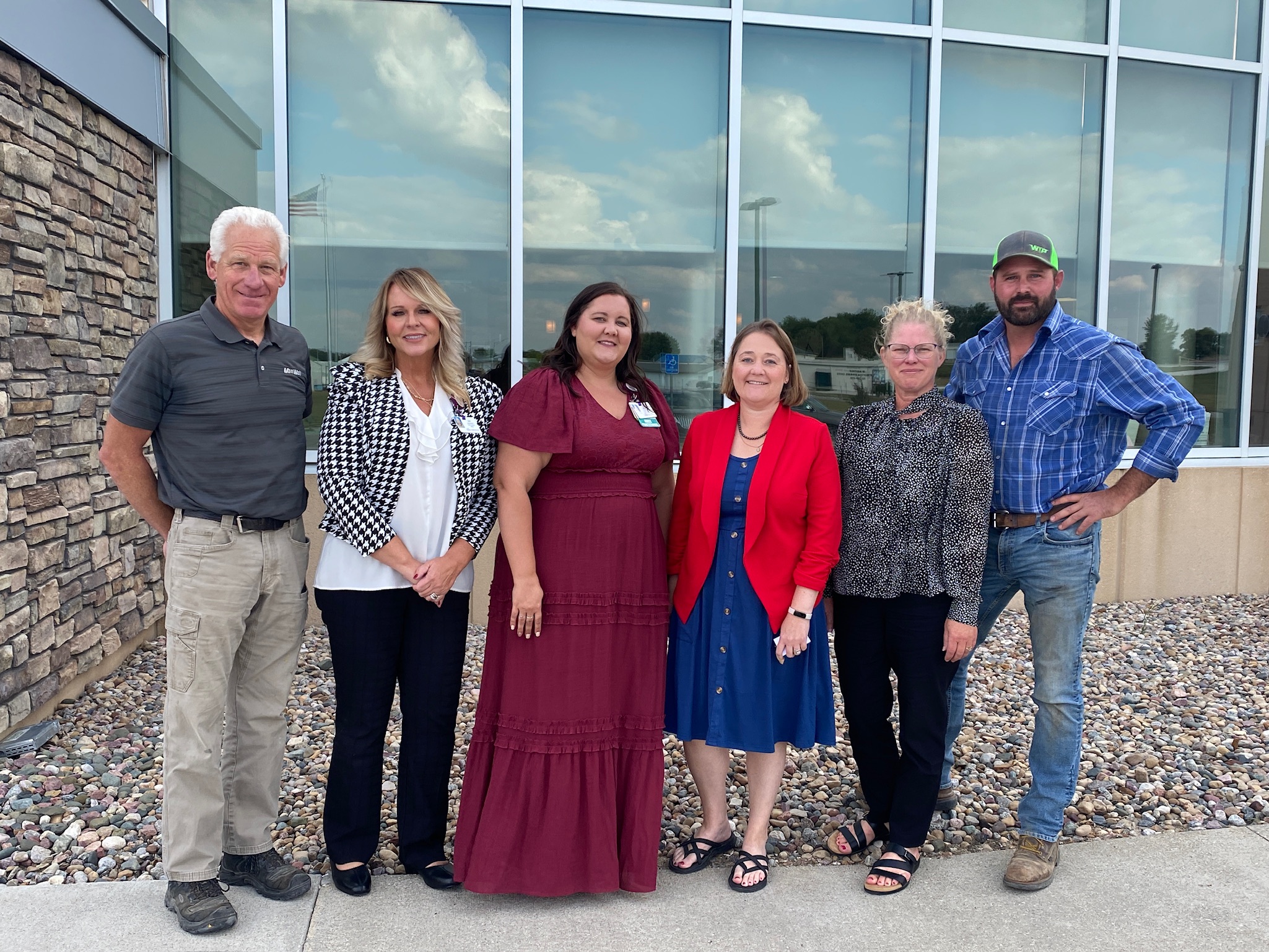
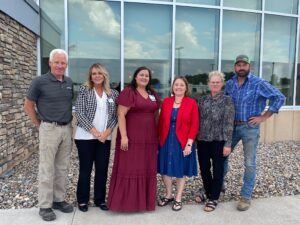
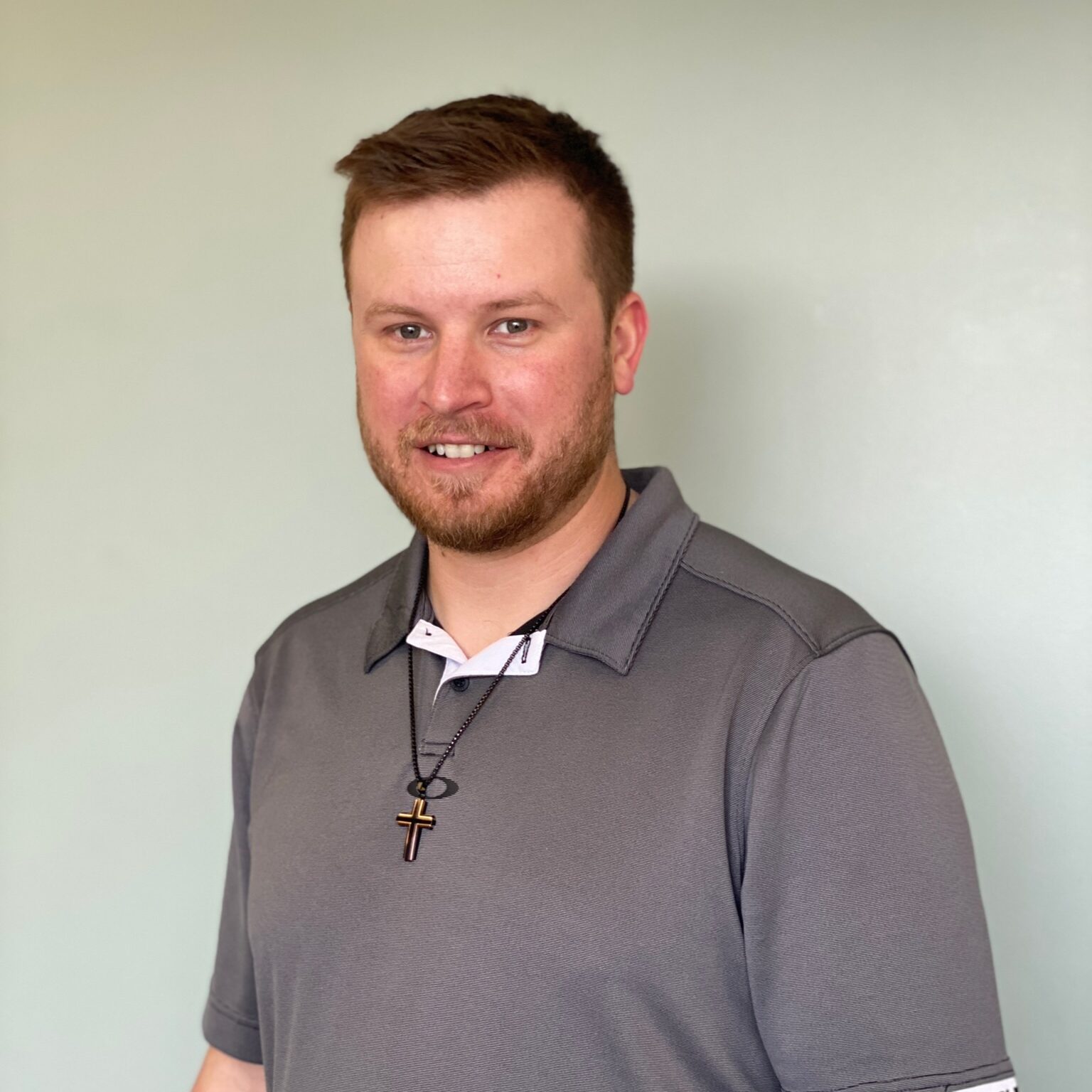
 “After working at the Recovery Center for a while it was clear to me that this is what I want to do for a living – help suffering addicts find hope in recovery,” explained Lytle. “Going through treatment here myself, I know the pain and struggles that our clients are going through. Being able to relate and help them through it is very rewarding and I want to continue doing that.”
“After working at the Recovery Center for a while it was clear to me that this is what I want to do for a living – help suffering addicts find hope in recovery,” explained Lytle. “Going through treatment here myself, I know the pain and struggles that our clients are going through. Being able to relate and help them through it is very rewarding and I want to continue doing that.”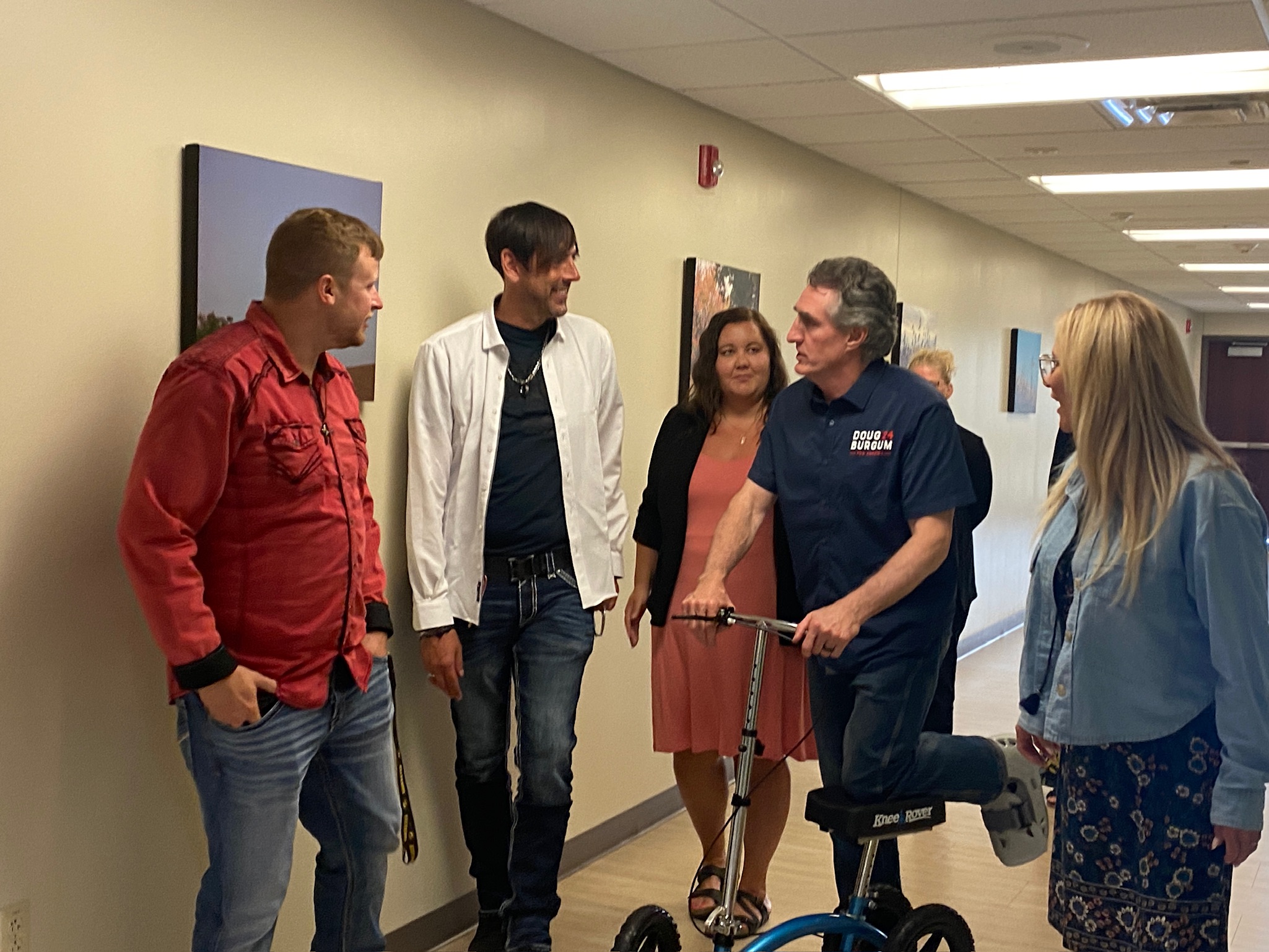
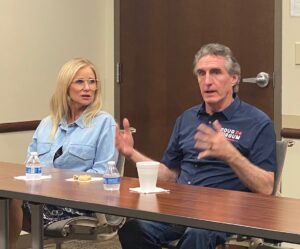 epublican presidential candidate and North Dakota Governor, Doug Burgum, along with his wife, Kathryn, visited Manning Regional Healthcare Center on Wednesday, September 6th to learn about the challenges and opportunities within rural healthcare.
epublican presidential candidate and North Dakota Governor, Doug Burgum, along with his wife, Kathryn, visited Manning Regional Healthcare Center on Wednesday, September 6th to learn about the challenges and opportunities within rural healthcare.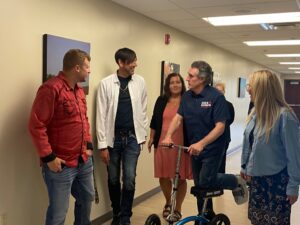 He continued, “These are sons and daughters [or] nieces and nephews of people who have been trapped in the disease of addiction and this is something we have to take on as a nation. There is a role for communities to play, but it starts right here like what is happening in Manning where great people [are] caring for each other and approaching this as the disease it is to fight against the disease of addiction.”
He continued, “These are sons and daughters [or] nieces and nephews of people who have been trapped in the disease of addiction and this is something we have to take on as a nation. There is a role for communities to play, but it starts right here like what is happening in Manning where great people [are] caring for each other and approaching this as the disease it is to fight against the disease of addiction.”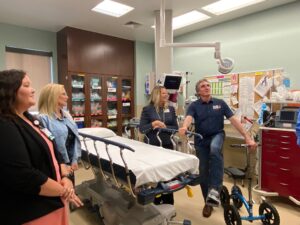 Additionally during the hospital tour, the Governor and first lady stopped in the emergency department and experienced a live-look at the Avel e-Care emergency response system. They were impressed with the quality of care that can be achieved in rural areas despite having limited staffing. They also acknowledged that additional technological advances are necessary in order for rural healthcare to succeed long-term.
Additionally during the hospital tour, the Governor and first lady stopped in the emergency department and experienced a live-look at the Avel e-Care emergency response system. They were impressed with the quality of care that can be achieved in rural areas despite having limited staffing. They also acknowledged that additional technological advances are necessary in order for rural healthcare to succeed long-term. “We are thankful for the Governor and Kathryn’s visit to MRHC and appreciate them taking time to learn about the unique services we offer here, as well as the challenges we face with regard to rural healthcare funding and staffing,” shared MRHC CEO, Linn Block.
“We are thankful for the Governor and Kathryn’s visit to MRHC and appreciate them taking time to learn about the unique services we offer here, as well as the challenges we face with regard to rural healthcare funding and staffing,” shared MRHC CEO, Linn Block.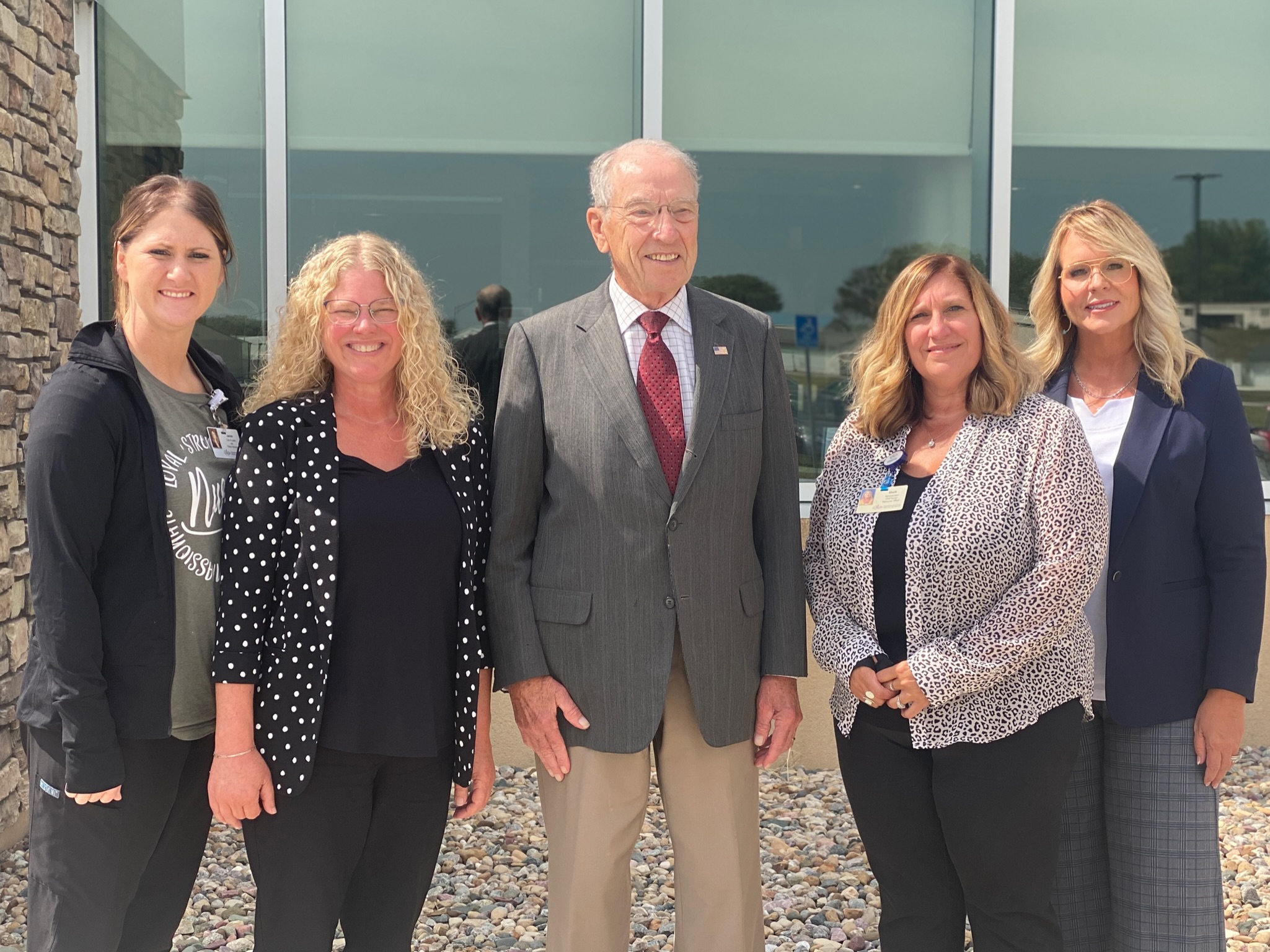
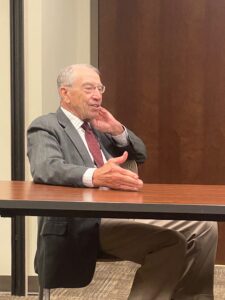 U.S. Sen. Chuck Grassley (R-Iowa) toured Manning Regional Healthcare Center and met with hospital administration and board leadership on Monday, August 28, as part of his annual 99 county tour. Also present on behalf of MercyOne were Bob Ritz, CEO; Mary Cownie, Chief of Staff; and Mike Trachta, Vice President of Network Affiliates.
U.S. Sen. Chuck Grassley (R-Iowa) toured Manning Regional Healthcare Center and met with hospital administration and board leadership on Monday, August 28, as part of his annual 99 county tour. Also present on behalf of MercyOne were Bob Ritz, CEO; Mary Cownie, Chief of Staff; and Mike Trachta, Vice President of Network Affiliates.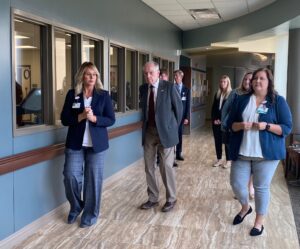
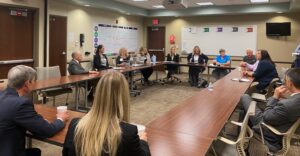
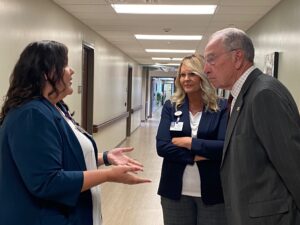
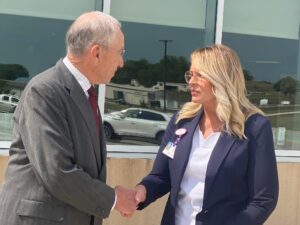
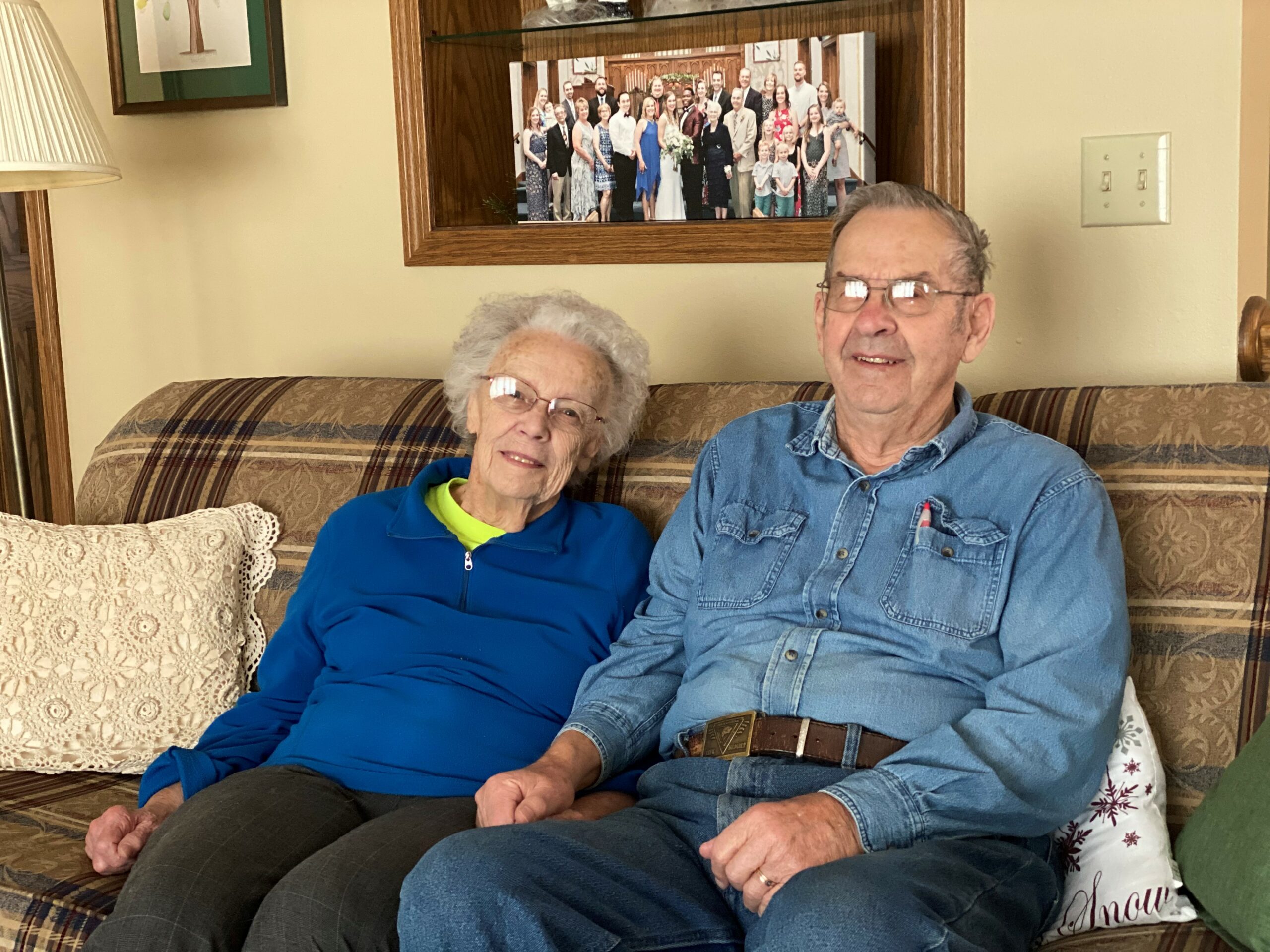
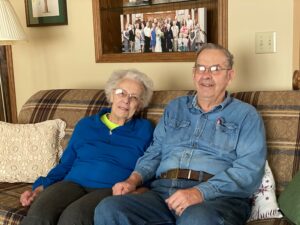 In today’s day and age, people often want to ‘experience the most’ and ‘live their best life.’ One part of living a great life is to be grateful for the opportunities and places that you value and to consider the impact you want to make and the legacy you wish to leave for the next generation.
In today’s day and age, people often want to ‘experience the most’ and ‘live their best life.’ One part of living a great life is to be grateful for the opportunities and places that you value and to consider the impact you want to make and the legacy you wish to leave for the next generation.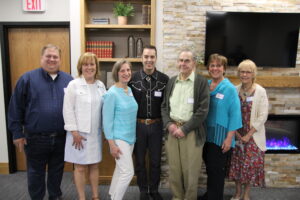 Most notably was their foundational gift to kickstart the
Most notably was their foundational gift to kickstart the 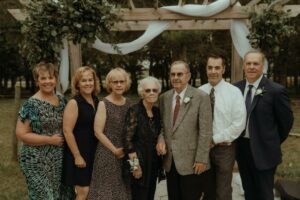
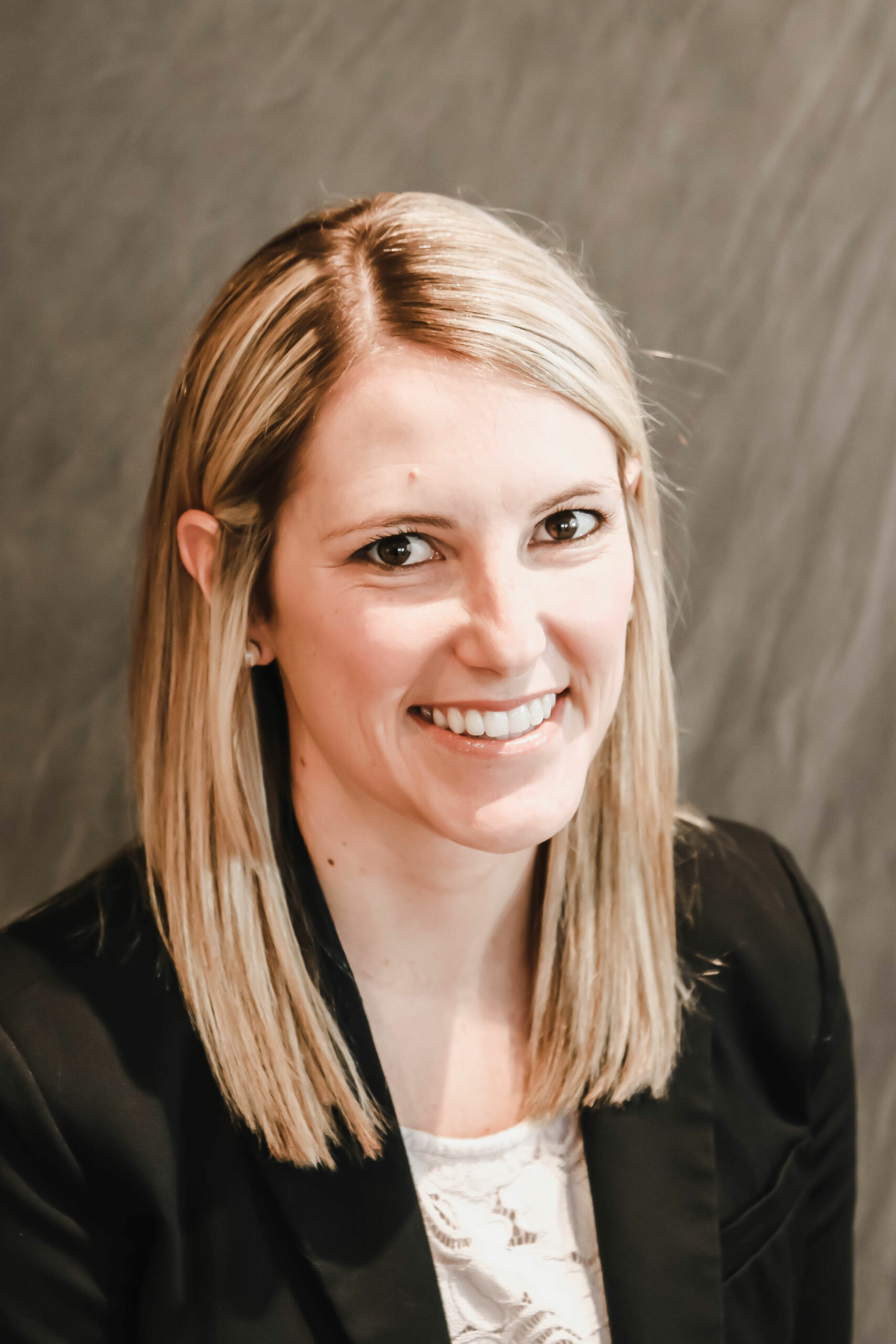
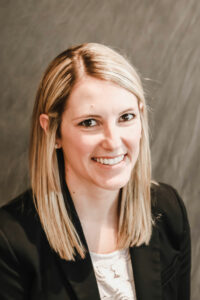 Amy McLaughlin, Manning Regional Healthcare Center’s (MRHC) Chief Financial Officer, recently earned her designation as a Fellow of the Healthcare Financial Management Association (FHFMA). Following the completion of the Certified Healthcare Financial Professional exam, McLaughlin’s continued volunteerism, years of service with the lowa Chapter, and letter of recommendation allowed McLaughlin to be recognized as a Fellow of HFMA.
Amy McLaughlin, Manning Regional Healthcare Center’s (MRHC) Chief Financial Officer, recently earned her designation as a Fellow of the Healthcare Financial Management Association (FHFMA). Following the completion of the Certified Healthcare Financial Professional exam, McLaughlin’s continued volunteerism, years of service with the lowa Chapter, and letter of recommendation allowed McLaughlin to be recognized as a Fellow of HFMA.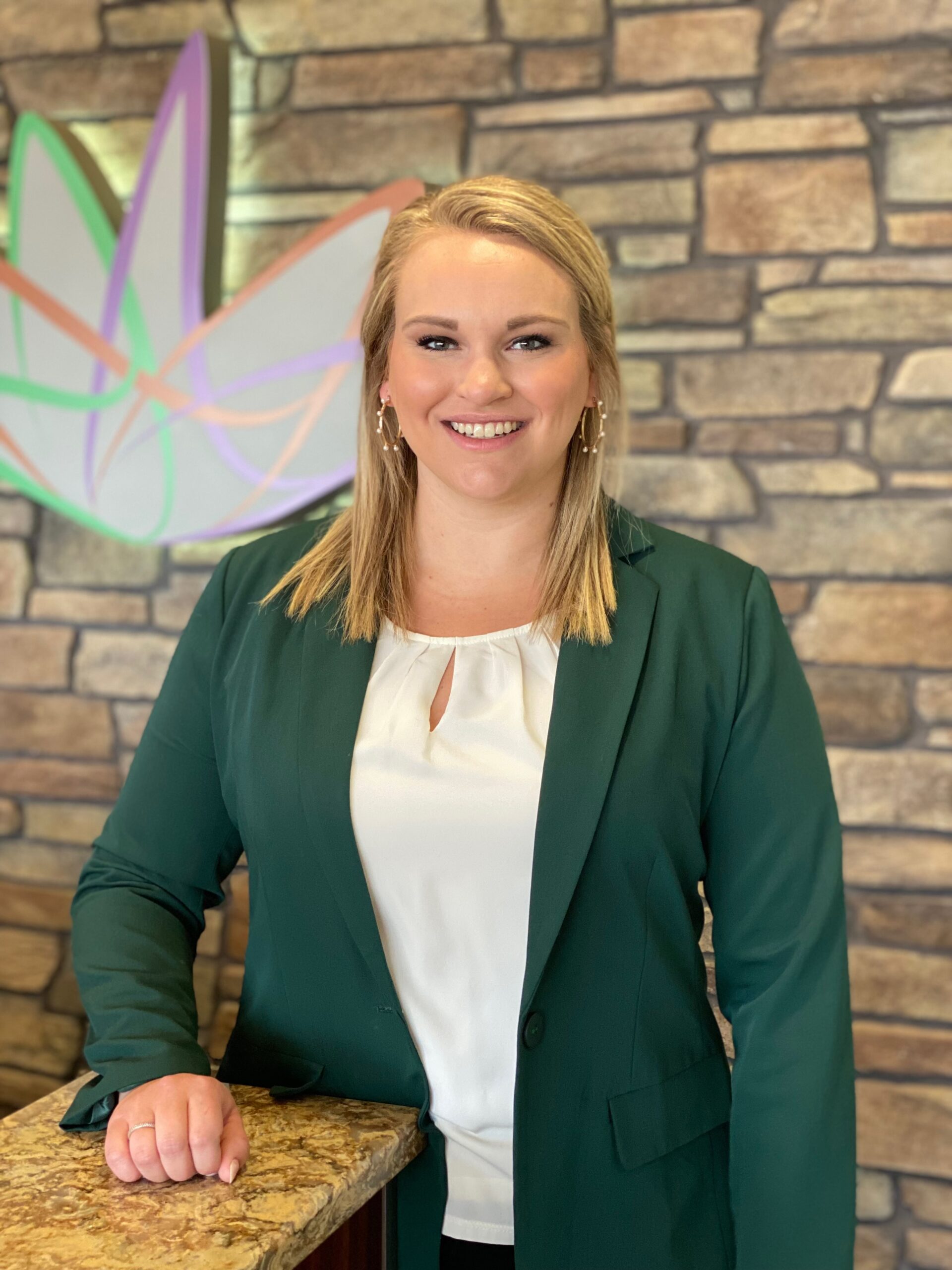
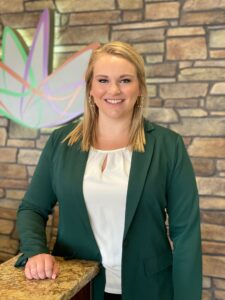 Manning Regional Healthcare Center’s Family Practice Clinic provider, Sara Vitito, ARNP, knew she wanted to work in healthcare for as long as she can remember. When a position became available at MRHC, Vitito jumped at the opportunity to practice in the community she lives in.
Manning Regional Healthcare Center’s Family Practice Clinic provider, Sara Vitito, ARNP, knew she wanted to work in healthcare for as long as she can remember. When a position became available at MRHC, Vitito jumped at the opportunity to practice in the community she lives in.